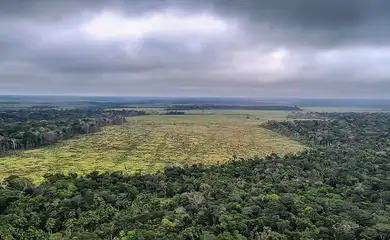Only 2 out of 10 cities in Brazil are prepared for climate change

The sustainability manager of the National Confederation of Municipalities (CNM), Cláudia Lins, said in Brasília Tuesday (Mar. 19) that only 22 percent of managers consider that their municipalities are prepared to face climate change. The figures can be found in a still ongoing study that heard representatives from over 3,600 Brazilian cities.

The statement was made during the Climate Federalism Workshop: Integrating States and Municipalities for Adaptation in Brazil, promoted by the Ministry of the Environment and Climate Change. Since September 2023, the meetings have been debating the ecological transformation agenda and the guidelines of the Climate Plan presented by the federal government.
The main reason given by managers for the lack of preparation, Lins reported, is the lack of technical and financial capacity. “We need to think about the far end of adaptation, but we also need to take action on prevention. The data from this survey showed that 68 percent of municipalities said they had never received any resources from the state or federal government to prevent climate change,” she pointed out.
Financial bottlenecks
Brazil’s Minister of the Environment and Climate Change Marina Silva acknowledged the financial bottlenecks faced by municipalities and said the federal government is attentive to these demands. “I agree we need to get stronger and stronger financially, but I also have an extra GDP when another ministry is fulfilling the sustainable development agenda,” she declared.
The minister also mentioned the legal limitations on the decentralization of resources in the environmental sector, since the Constitution does not regulate the issue, but she cited examples of success when decentralization is planned, such as the purchase of school meals directly from family farmers, where governments from different levels work together.
“Federalism has to be accompanied by the capacity to implement governance and cooperation policies so that we truly have a federative system that can work together in an integral way,” she said.
The minister underlined the priority public policies the federal government has been implementing in the country, such as the goal to reach zero deforestation and fires, as well as the fight against inequalities. She also listed alliances with states to work in the sector. “Climate change and tackling the global environmental crisis [represent] a generous, inclusive fight in which everyone can participate,” she concluded.





